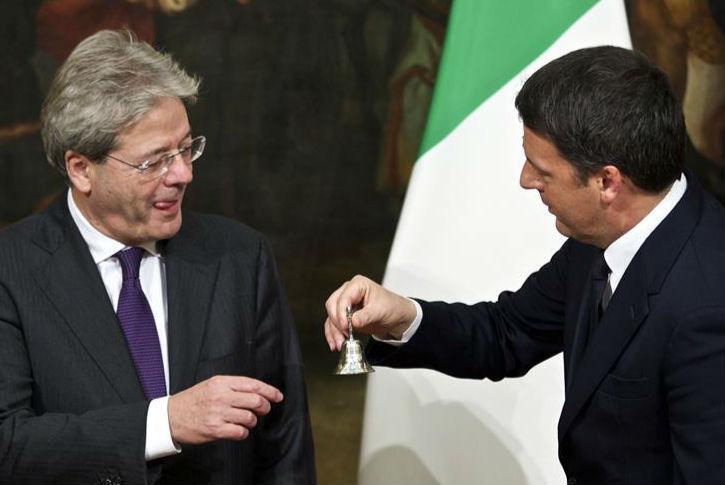ROME, Dec. 12 (Xinhua) -- The new Italian government formed by newly-appointed Prime Minister Paolo Gentiloni officially sworn in on Monday.
Gentiloni received the mandate from Italian President Sergio Mattarella to form a transitional government on Sunday, after former prime minister Matteo Renzi resigned on Dec. 7 for losing a crucial referendum.
Gentiloni is from the same party of Renzi, the center-left Democratic Party (PD), the largest political force in the parliament.
The new cabinet was sworn in at 8 p.m. local time.
Most key figures were confirmed in their office, including Economy Minister Pier Carlo Padoan, Defense Minister Roberta Pinotti, Justice Minister Andrea Orlando, Labor Minister Giuliano Poletti, and Minister of Economic Development Carlo Calenda.
Angelino Alfano -- outgoing interior minister -- has been named as foreign affairs minister, which was Gentiloni's previous office.
He will be replaced at the interior ministry by Marco Minniti from the center-left Democratic Party (PD), the largest force in the parliament and party to which Gentiloni and Renzi both belong.
The visible continuity with the previous center-left cabinet was meant to be a reassuring message for international and European observers, and for financial markets.
"As it is clear, the government will continue with the innovative action so far carried out by the cabinet led by Matteo Renzi," Gentiloni acknowledged.
"At the same time, it will strive to facilitate the parliamentary forces' task of identifying new rules for the electoral law."
Changing, or amending, the electoral system would in fact be a priority over the next months, in order to allow the country to eventually face early elections.
Currently, two different laws govern the election of the Senate and the Lower House of parliament, and the president has stressed they need to be "harmonized."
The legislature term ends in February 2018. Yet, all opposition forces have been pressing for snap elections since the cabinet-backed constitutional reform was rejected in the referendum, and a general vote might be called as early as spring 2017.
But before that, the new government will have to deal with some pressing issues at home and international level, including the financial crisis haunting Monte dei Paschi di Siena (MPS), the country's third largest bank.
Other priorities are the reconstruction in quake-hit central region, a still weak economic recovery, and high unemployment.
"The country is back on its feet again," Gentiloni said in his address."Yet, we cannot neglect the various form of discomfort, especially among the most vulnerable sections of the society and in south Italy, where unemployment is a more dramatic emergency than elsewhere."
The new government will ask for a confidence vote in both the senate and the lower house within the week.
But opposition Five Star Movement (M5S) and Northern League have both voiced boycott to the parliamentary vote, saying the new cabinet has no legitimacy.
Nonetheless, the cabinet is still expected to receive the confidence from the parliament, counting on a solid majority.




 A single purchase
A single purchase









